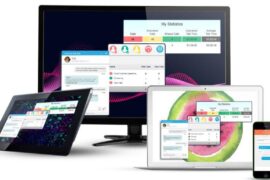When there is a downturn in the economy, people think about starting their own business. You may consider starting a business, especially if you are unemployed. There are a lot of rewards that come from doing this, but there are also several requirements that need to be met and questions that need to be answered.
Determine the Industry You Want to Be in
Everything starts with an idea. What do you want to do? What industry do you want your business to be in? It is good for you to do research from the top down, looking to see if other people are already doing your idea. If so, what can you do to set your business apart from the rest?
If you see that other people have the same idea as you, it’s not the end of the world. Just think how many burger joints there are out there. And most them are making money. You just need to find a unique approach or unique angle.
How Much Money Will You Need to Start Your Business?
To answer this, you first need to sit down and create a business plan. Part of this plan could include identifying the assets you will need for your business. Next, determine how much of these assets will cost. Things to include might be inventory, web design, transportation, and electronic devices, such as tablets, phones, and computers.
Get the Financing to Get Your Business off the Ground
Now that you know how much you will need, the next question is, how will you get the money?
– Self financing could mean tapping into your personal savings, selling assets, using credit cards, getting a side gig, borrowing against your home, taking out a loan, or dipping into your retirement savings.
– Friends and family may be willing to loan you money. A survey done in 2015 showed that 68 percent of respondents started their small business by getting money from friends and family. This avenue has some risks, including strained relationships or the inability to pay family members back.
– Small business administration loans are more popular now than ever before, so take a look at Kapitus.com if you’re interested in these types of loans.
Brick-And-Mortar Versus Online Store
Brick-and-mortar stores still account for two-thirds of customer shopping. Research shows that most customers spend more than what they had planned when they visit a brick-and-mortar store. Storefronts and advertising can influence the purchasing decisions of customers.
However, online stores do not require expensive storefronts or warehouses for inventory. Fulfillment companies can serve as warehouses, making it easier to get products to customers. Online stores are easy to manage and require fewer personnel than is needed with a brick-and-mortar company.
Prepare Your Employees to Work Remotely
Thanks to Remote Desktop Protocol, it is easier than ever for people to work remotely. However, RDP is widely used, so it is a target for cyber attacks.
If you want your employees to work remotely while maintaining safety, it’s recommended that you limit access to remote control software to employees who need it.
Use a virtual private network to add an extra security layer to your RDP security. Since a VPN assigns a virtual IP address, any attempts to access your RDP from the outside will be rejected.
Passwords should be eight characters long, employees should not use their real mode access passwords for any other software service, there should be a lockout policy limiting the number of failed login attempts, and your system should be limited to trusted IP addresses.
Starting a new business is an exciting venture. There are a number of things to consider, like financing, location, whether or not you will have employees, and if they will work on premise or remotely. However, if you take your time and do your due diligence and research, you may start a business that can put you on the road to financial independence.































